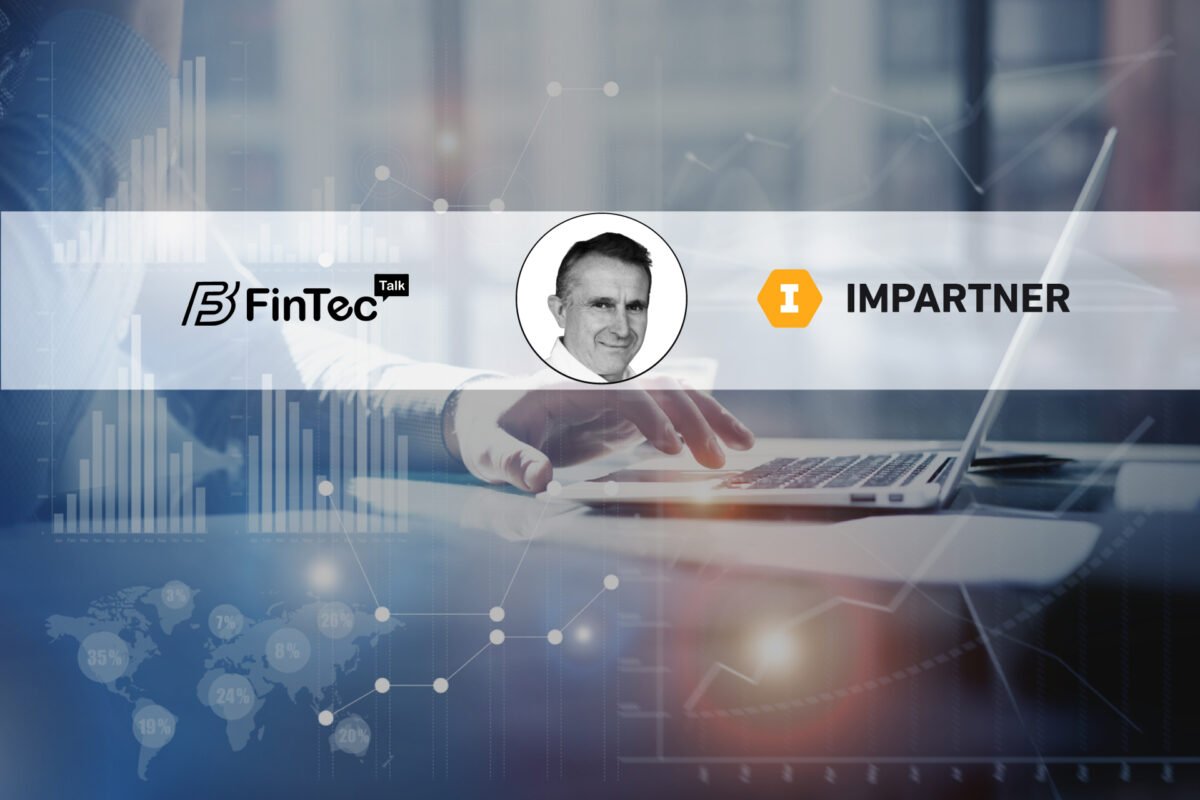Explore how agentic AI is redefining finance ops—boosting agility, automation, and insight in the fintech era of zero-touch transformation
Lavi, you’ve had a rich and diverse career. Could you briefly share your professional journey and what led you to focus on record-to-report transformation and service line growth?
My professional journey has been shaped by a mix of curiosity, client challenges, and the drive to make finance a true strategic partner.
Before joining Genpact, I built my foundation through the Institute of Chartered Accountant of India, which gave me a strong grounding in governance, compliance, and the discipline behind accounting and reporting. That early preparation taught me to see finance not just as numbers, but as a system of rigor and accountability.
At Genpact, where I serve today as vice president and Finance & Accounting business leader, I’ve had the privilege of working closely with CFOs across industries for over 15 years. My focus has been on record-to-report transformation, product management, business planning, and accounts closing and reporting. These are areas where even small improvements can ripple out to strengthen forecasting, risk management, and business decision-making.
Along the way, I’ve filed multiple patents in finance and risk, with five patents granted by the USPTO. These span process design, user experience, intelligent automation maturity models, controllership, and accelerating time to insights. All reflect my passion for blending innovation with business outcomes.
That passion for transformation and thought leadership also motivated me to co-author The 00001 CFO: Digital Finance Transformation in the Age of x+AI, published by Wiley. Writing the book gave me a platform to distill years of client experiences into a practical framework, one that challenges CFOs to embrace a ‘zero-touch, zero-exceptions, zero-time-to-insight’ mindset to reimagine finance in the AI era.
Finally, my focus on service line growth comes from a belief that innovation only delivers its full value when it can scale. Whether through digital accelerators, AI-enabled controls, or ecosystem partnerships, my goal has been to move from isolated client successes to enterprise-wide transformation. That blend of client impact, patents and innovation, and scalable growth is what continues to energize me.
The “last mile” of digital transformation is often the most complex and value-rich. What key challenges do enterprises face in bridging strategy and execution, and how can agentic AI help overcome them?
Many can pilot AI, but the same can’t be said for scaling it. The “last mile” of digital transformation is where strategy either becomes real, or stalls. Enterprises often struggle in this final stretch because the leap from vision to execution demands more than just technology. It requires deep operational knowledge, end-to-end process visibility, and the ability to address exceptions at scale. There is no artificial intelligence without process intelligence.
This is where an applied AI advisory partner like Genpact comes in. We bring in the finance expertise and process intelligence enterprises need to rewire the last mile for agility, accountability, and enterprise value. That’s how we bridge strategy and execution, and that’s where transformation becomes tangible.
We’re reimagining end-to-end process flows through an AI-first lens — not just embedding technology, but fundamentally reshaping how decisions are made and outcomes are achieved. Agentic AI enables us to scale by integrating intelligent agents into critical workflows that don’t just automate, but adapt, learn, and guide decisions in real time. These agents thrive in complexity, helping finance teams, for example, shift from reporting to forecasting, from reconciliation to prediction.
Unlike traditional automation, agentic AI operates with context and autonomy. How do you envision these capabilities transforming high-effort areas like accounts payable (AP) within your organization?
Agentic AI is a catalyst for transforming high-effort processes like accounts payable. Unlike traditional automation which follows preset rules, agentic AI can be goal-oriented. It makes decisions, adapts to challenges, and proactively resolves issues.
For example, in accounts payable – which has traditionally been a labour intensive, costly process – the use of agentic AI can drive faster, more precise processing, timely payments with near zero duplicates, improved discount capture, proactive communication, and stronger relationships with suppliers – all with minimal human intervention. This frees up AP teams to focus on higher-value work that drives real business impact.
Improving cash flow is critical in today’s economic landscape. How can AI agents improve cash flow and with minimal human intervention?
When properly adopted, AI agents can manage cash flow forecasting, flag anomalies in real time, proactively offer suggestions for cost optimization, and orchestrate upstream workflows. Example for faster inflows – Agents can proactively remind customers of due payments to automate collection, predict customer payment likelihood through dynamic credit risk assessments, reconcile in real time and take corrective action for dispute resolution based on past trend of
What measurable business outcomes or KPIs would you expect to see from implementing agentic AI in the finance function?
The impact of agentic AI on finance operations is profound. To lay it out, when organizations enable AI agents to perform routine finance tasks autonomously, they can see up to 80% touchless processing in areas like accounts payable and reconciliation. This isn’t just labor arbitrage; it’s intelligent automation that adapts and learns from historical patterns, regulatory changes, evolving data sources, and macroeconomic shocks. In turn, AI agents are equipped to flag anomalies and accelerate close cycles, giving finance teams real-time visibility across the enterprise and freeing up human capital, ushering in a shift from transactional processing to high-impact strategic work. This includes scenario modeling, M&A analysis, risk mitigation, and enabling faster, smarter decisions. Simply put; by embracing agentic AI, CFOs are building finance organizations that can flex and respond without needing to rebuild their tech stacks every few years.
Lavi, how are you preparing your finance teams to adopt and work effectively with AI agents to enable lasting transformation?
Successfully scaling agentic AI across the finance function requires more than tech deployment. It’s about orchestrating sustainable, enterprise-wide transformation, which starts with intentional leadership and a clear, value-driven roadmap. To do this, leaders must:
- Start with High-Value Use Cases: Prioritize areas with clear ROI, such as AP automation, forecasting, and fraud detection, and use these early wins to build momentum and demonstrate value.
- Build Cross-Functional Alliances: Finance transformation can’t happen in a silo. To align AI initiatives with broader enterprise goals, CFOs must collaborate with CIOs, CDOs, CHROs, and other business unit leaders.
- Create a Scalable, Governed Framework: Establish clear guardrails for AI adoption, focusing on data quality, model explainability, and compliance. Agentic AI should drive agility with accountability.
Agentic AI is a powerful evolution, but to unlock its full potential, finance teams must be equipped, connected, and governed for long-term success.
What role should the CFO play in driving the cultural and skills shift needed to fully leverage agentic AI in financial operations?
It’s not to be overstated that agentic AI is the best secret weapon for CFOs who are eager to drive growth and establish a strong competitive advantage in today’s increasingly challenging market. CFOs need to be bold leaders and act when opportunity presents itself. Whether this be through building collaborative frameworks with clients and partners, mastering secure data sharing, or upskilling their workforce, the CFOs that embrace AI assistance will outperform those clinging to old ways of working. It’s their duty as a leader to foster a culture where AI complements human judgment.
Agentic AI requires not just new tools, but a new mindset. What are the biggest cultural or organizational barriers to AI adoption you’ve encountered or anticipate—and how can they be overcome?
While AI adoption might not seem like a traditional CFO responsibility, it’s critical that finance leaders take the lead in upskilling their teams and fostering an AI-ready culture. Without the right skills, even the best AI investments will fall short. CFOs should evaluate their current workforce, identify reskilling opportunities, and invest in training programs that help teams effectively collaborate with AI. Creating practice environments and celebrating early adopters can also accelerate internal momentum.
As AI reshapes finance functions, CFOs must thoughtfully redesign roles to reflect this shift, moving beyond automation to create new positions like AI auditors, finance data translators, and value architects. While change can be unsettling, strong leadership and a culture that embraces innovation will help teams view AI not as a threat, but as a valuable partner in driving smarter, faster decision-making.
How do you see agentic AI evolving in enterprise finance over the next 3–5 years, and what should organizations do now to stay ahead of the curve?
Finance is no longer just about control – it’s about capability. Over the next 3–5 years, agentic AI will fundamentally reshape the enterprise finance function, moving us from reactive decision-making to proactive orchestration. We’ll see AI agents not only automate repetitive workflows but also take on judgment-based tasks. That evolution will redefine how finance partners with the business.
To stay ahead, CFOs must act now. Not just investing in agentic AI, but more critically, re-architecting finance around intelligence, speed, and agility. It’s about upskilling people, redesigning roles, and building a culture where AI is a trusted collaborator.
What advice would you give to finance leaders looking to begin their agentic AI journey and drive meaningful, long-term impact?
Start with a clear vision, but move quickly. Agentic AI isn’t just another technology initiative. It’s a reimagination of how finance operates. My advice: begin by identifying high-impact use cases, invest in upskilling your teams, and create space for experimentation. Build a strong data foundation and bring your people along by embedding AI literacy across all levels.
The finance leaders who lean in, scale with intention, and embed AI into the DNA of decision-making will not just weather the transformation ahead — they’ll define the next era of financial value. This is not a moonshot, but a foundational playbook.
Stay Ahead of the Financial Curve with Our Latest Fintech News Updates!




